In an effort to share the current research, knowledge, and practices, IRRI Education, the educational and capacity building arm of the International Rice Research Institute (IRRI), recently organized a comprehensive training on genomic prediction and data-driven crop breeding. Held from August 5 to 9, 2024, the training attracted a diverse group of participants from Asia and Africa, to learn about the genomic selection and other data-driven strategies in crop breeding.
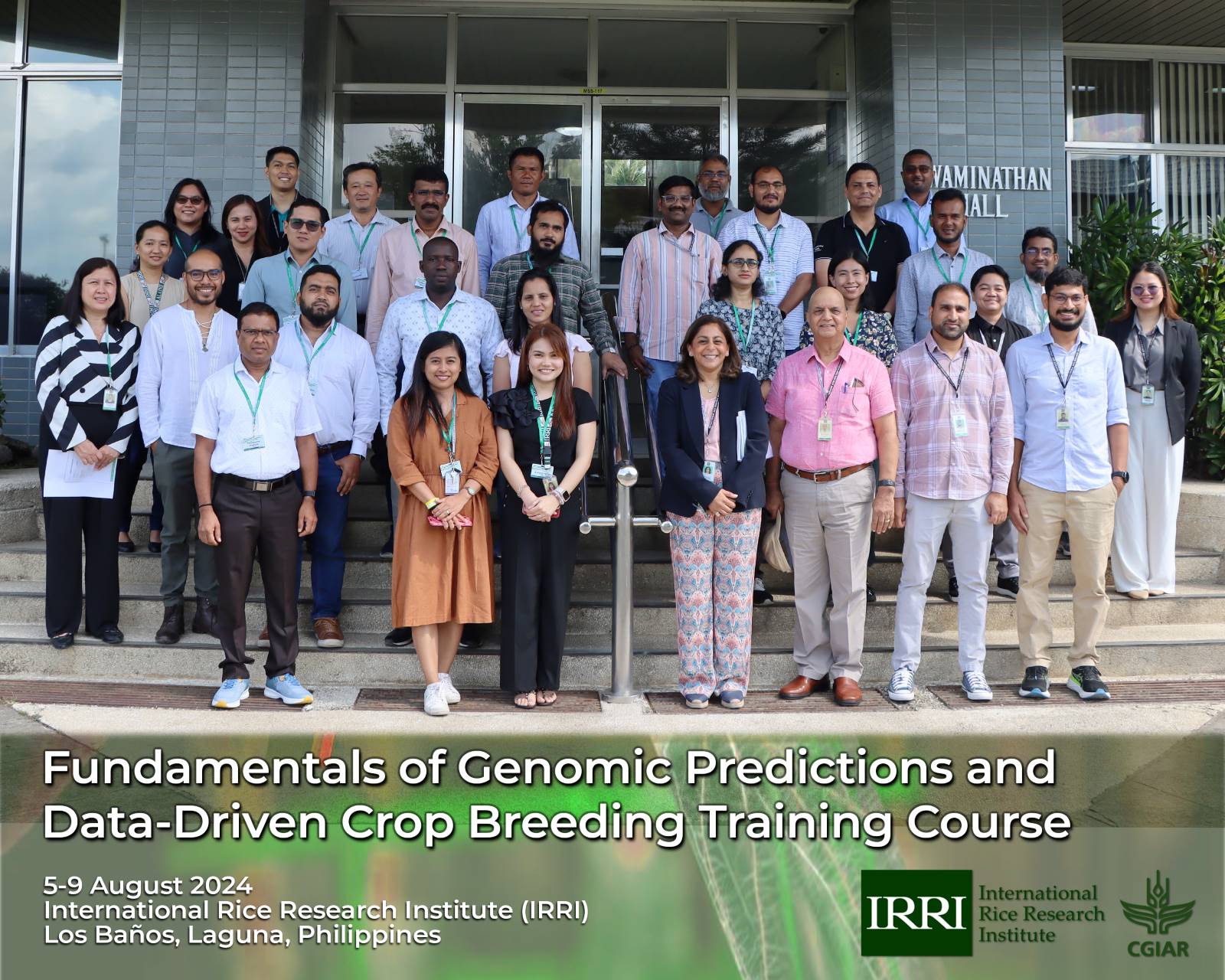
Enhancing Capacities: IRRI Trains Crop Breeders from Asia and Africa
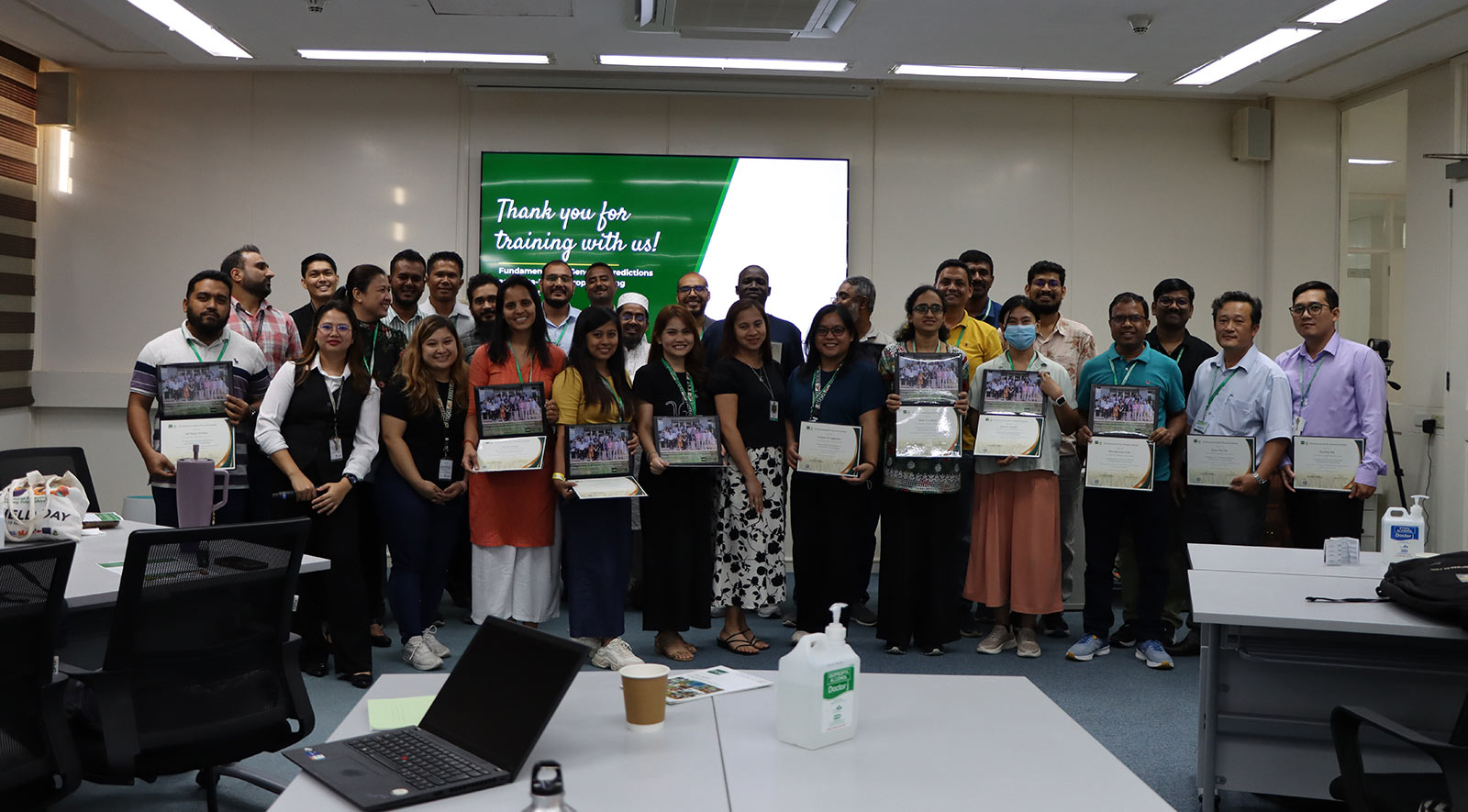
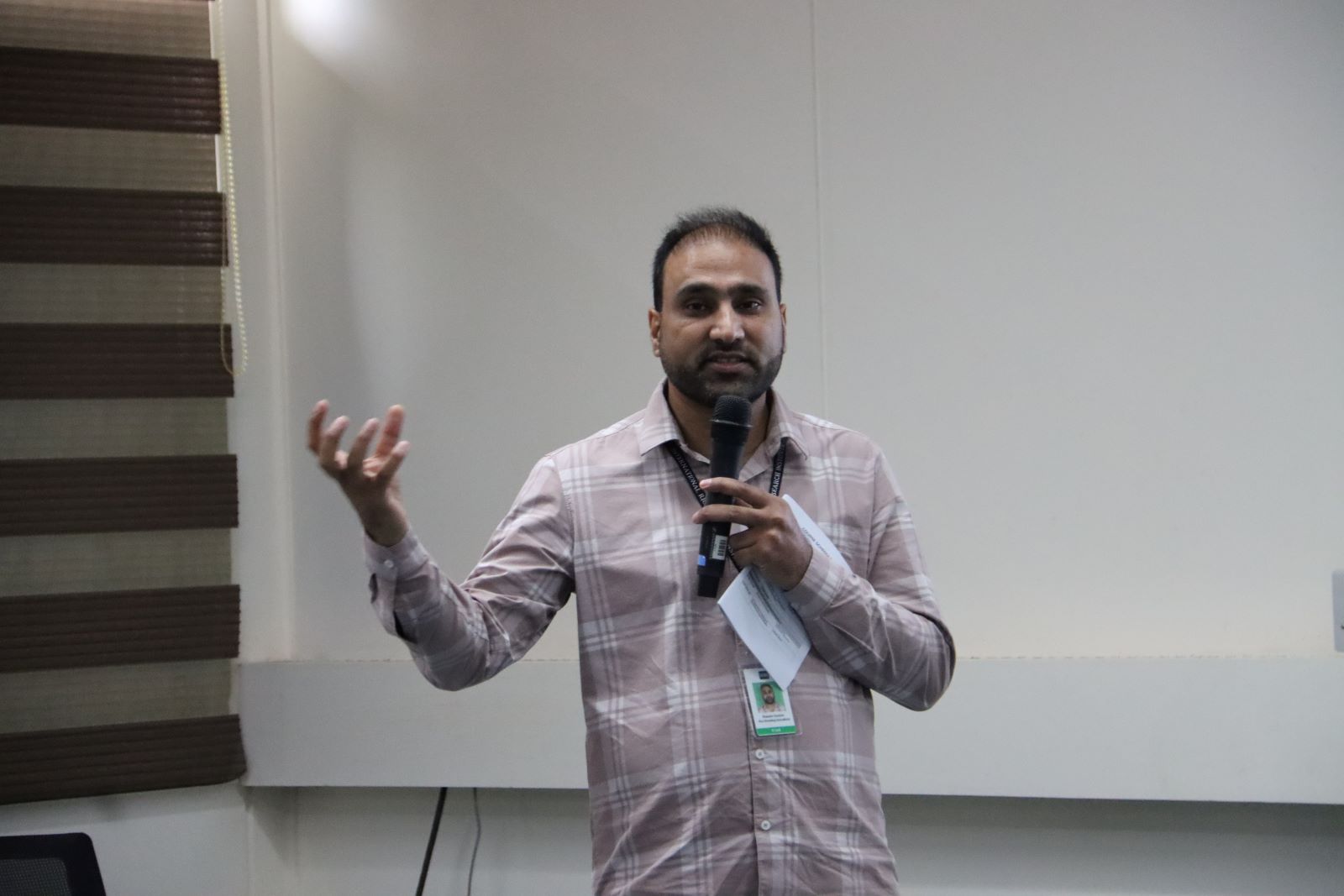
This training course was conceptualized and initiated by IRRI’s scientists Dr. Waseem Hussain, IRRI’s Senior Scientist I in Plant Breeding, Dr. Eduardo (Giovanny) Covarrubias-Pazaran Senior Scientist II – Quantitative Genetics and Biometrics; Dr. Mahender Anumalla, Scientist I – Breeding Long Duration Rice; Dr. Parthiban Thathapalli Prakash, Scientist I – Breeding Optimization; Ms. Leilani Nora, Specialist – Statistics; and Ms. Alaine Gulles, Lead Specialist – Biometrics and Breeding Analytics It aimed to integrate knowledge in quantitative genetics, predictive breeding, and innovative breeding methods. This includes a comprehensive understanding of quantitative genetics and statistical genomics, enabling participants to apply these tools for genomic selection effectively. A total of 20 scientists and crop breeders from India, Ethiopia, Bangladesh, Philippines, Laos, Vietnam, Cambodia, Senegal, and Nepal participated in this 5-day course.
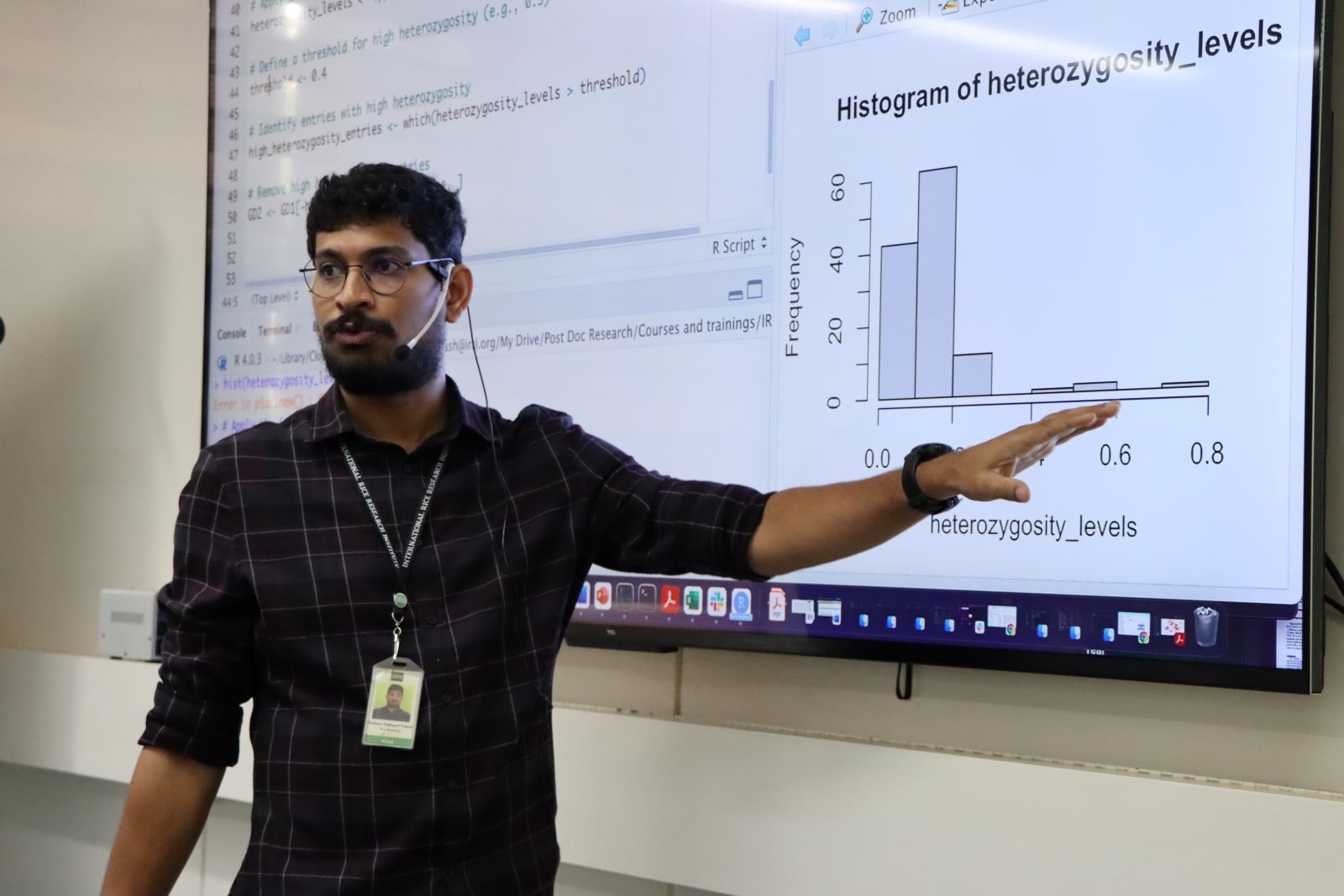
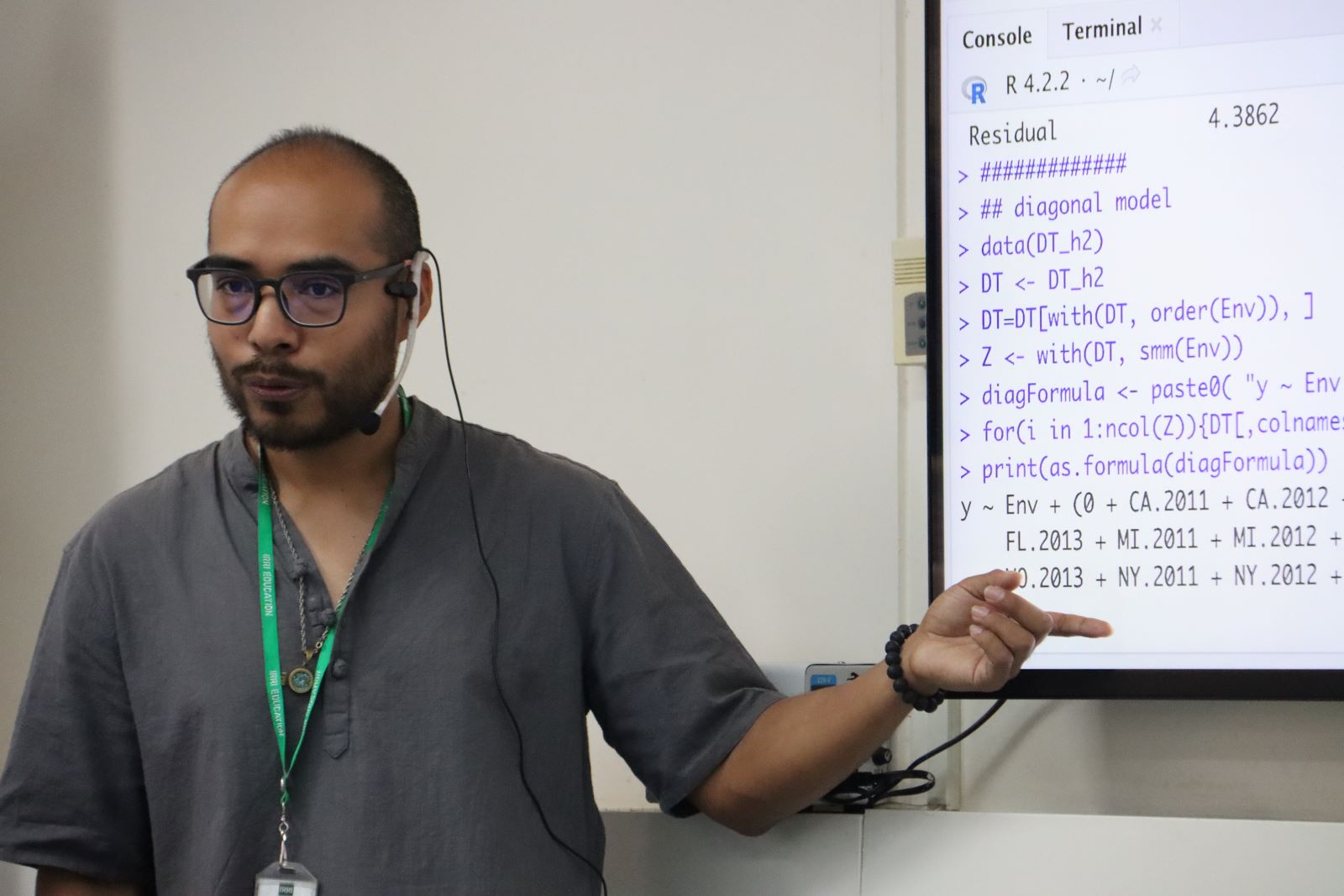
Over the course of five days, the participants engaged in intensive discussions involving theoretical concepts as well as practical and hands-on exercises. Structured into five modules, the training sessions covered topics on the R software and R markdown, quantitative genetics, statistical modeling in predictive genetics and breeding, implementation of genomic selection in plant breeding, dissecting G x E interactions and crossing strategies.
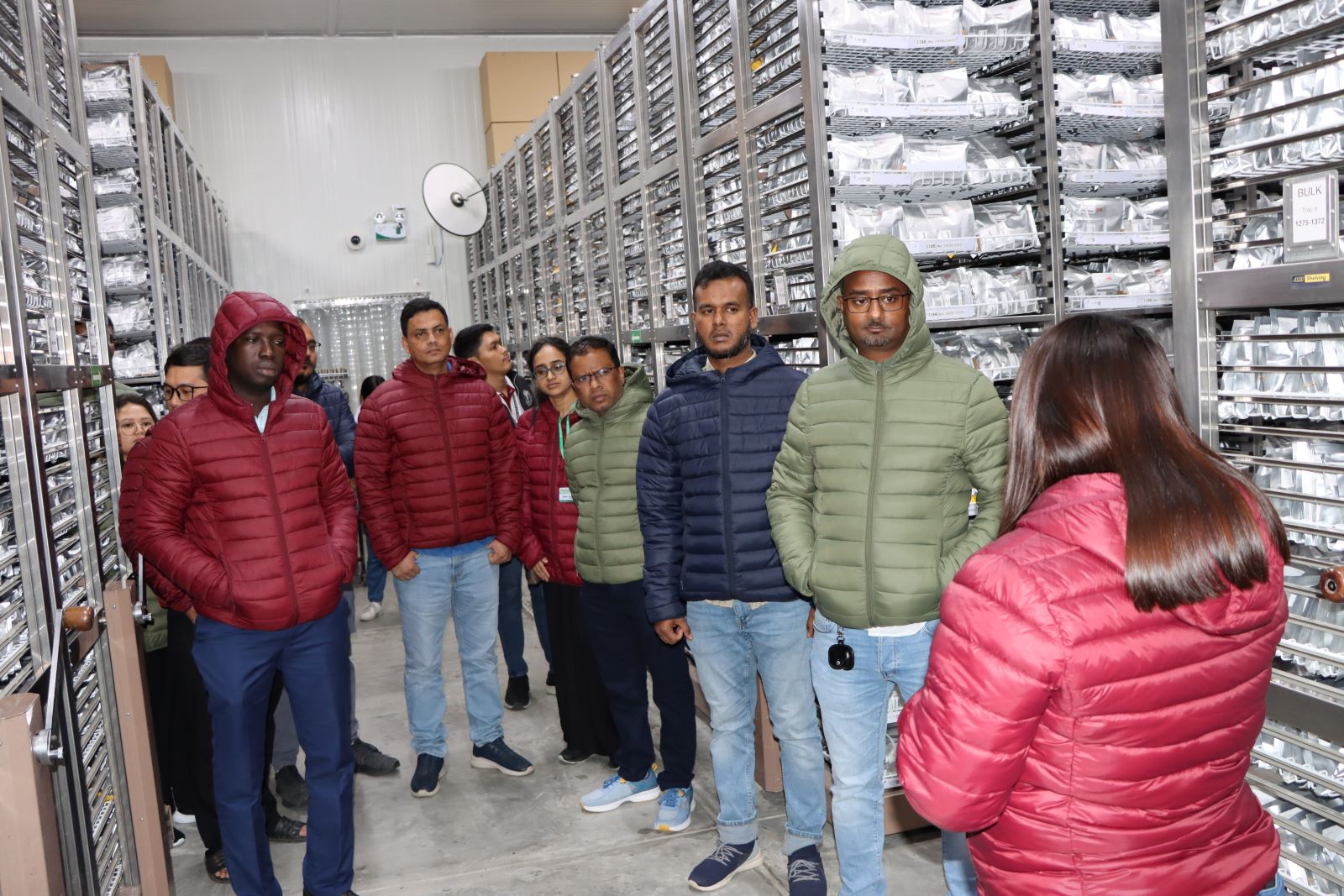
Apart from the classroom sessions where they interacted with the resource persons, the participants also had the opportunity to visit IRRI’s Genotyping Service Lab, which offers trait genotyping with over 100 validated SNP markers for 25 QTLs/genes related to biotic and abiotic stresses, grain quality and yield. They also visited the International Rice Genebank that holds more than 132,000 available accessions, making it the collection of rice genetic diversity in the world. This excursion allowed them to understand the scale and diversity of rice germplasm, which is crucial for applying genomic predictions and breeding methods effectively.
During the course closing program, all the resource persons expressed their gratitude to the participants. They echoed the same sentiments, assuring the participants that all of them are available in case any of them have any additional queries or if they are interested in collaborating.
Dr. Anilyn Maningas, Head of IRRI Education congratulated the participants for completing the intensive training. She hoped that they share the knowledge and skills they have been equipped with with their colleagues in their respective institutions.
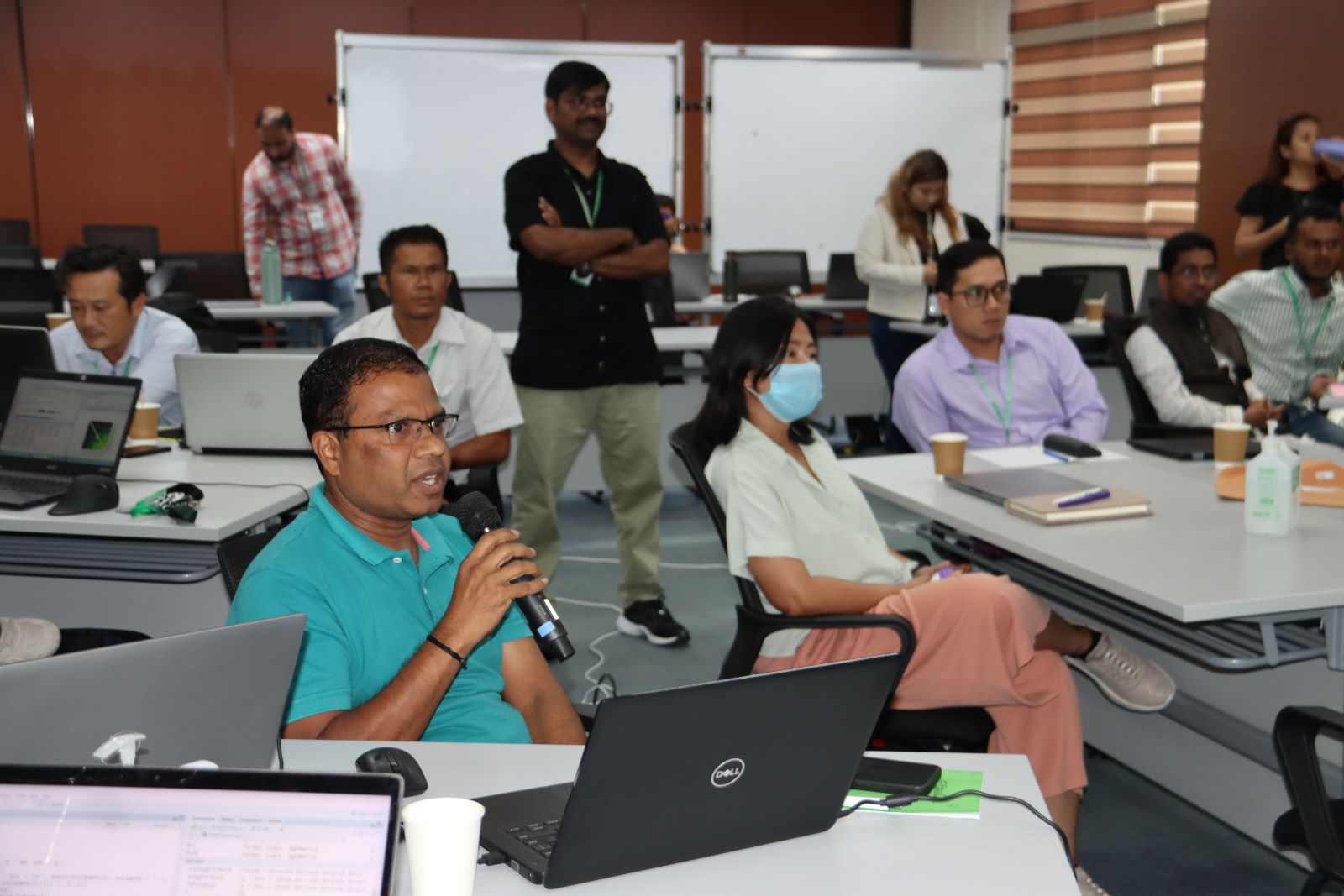
After the program, participants shared their thoughts, feedbacks, and key takeaways. Katreena Navea from IRRI headquarters remarked, “As someone involved in pre-breeding, my understanding and exposure to the comprehensive activities of the breeding programs is limited. The training course has significantly deepened my understanding of the modern breeding process and the theories behind it. Aside from the knowledge gained from the modules, the course has also been helpful in looking at the processes in a holistic perspective, and how our team’s pre-breeding efforts contribute and align to the overall goals IRRI’s breeding strategies”
Md. Moniruzzaman from IRRI Bangladesh commented, “We have received a lot of essential R scripts as well as soft copies of the training materials. Besides this, we also did hands-on practice and ran the analysis with demo data, which was very interesting and will be useful for my own program”.
Another participant shared, “[This is a] highly recommended course. All the RPs are well equipped and provide a practical approach on the modern breeding models and tools. It can improve one’s approach on conducting breeding programs”.
Learn more about this training course and other programs offered by IRRI Education, visit education.irri.org

